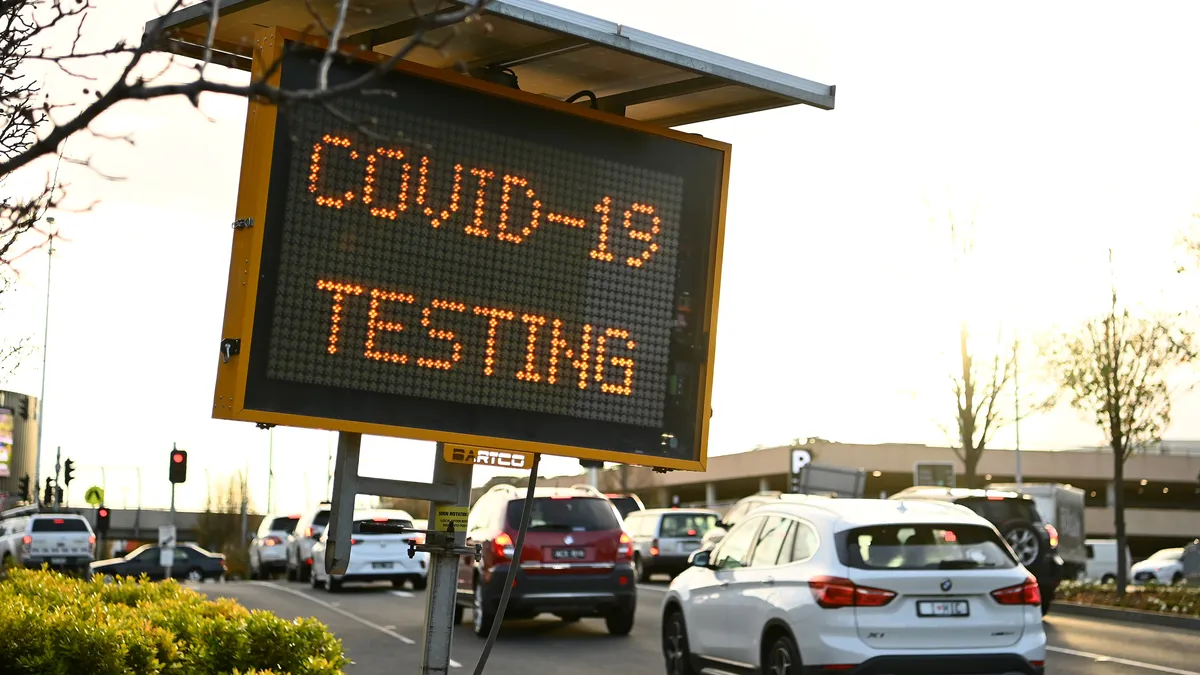In a reversal from this winter when Americans waited hours at COVID-19 testing sites and could not find rapid antigen tests during the omicron surge, coronavirus diagnostics in the United States — both over-the-counter and laboratory-based — are now generally available.
While the BA.2 subvariant is spreading in the U.S., particularly in the Northeast, so far there are few signs of a COVID-19 surge at the scale experienced during omicron's peak in January. Nonetheless, Quidel reported record COVID-19 test sales for the first quarter.
Quidel earlier this month said it expects first-quarter revenue in the range of $990 million to $1 billion, with CEO Doug Bryant claiming the company is "well-positioned to deliver strong performance" for the year as it targets the professional, retail and government testing markets.
Meanwhile, rival Abbott Laboratories was recently awarded a $1 billion contract by the U.S. Army to provide rapid COVID-19 antigen tests to the federal government, as part of the Biden administration's efforts to purchase one billion at-home test kits to help meet future testing demand.
Though the pandemic is not over yet, the Food and Drug Administration is putting together its plans for that eventuality.
In recent weeks, the agency has encouraged COVID-19 test developers to submit premarket submissions for review to ensure their diagnostics products can be marketed beyond the U.S. public health emergency.
Tim Stenzel, director of the FDA's Office of In Vitro Diagnostics and Radiological Health, in particular has urged antigen test developers to pursue "conversions" of emergency use authorizations (EUAs) to fully authorized versions of their products. "Go ahead and get in line," Stenzel said during a late March virtual town hall meeting, adding that first in submissions don't necessarily mean first out depending on "whether any additional work may be needed."
So far, the FDA has only granted a de novo and 510(k) clearance for COVID-19 molecular tests. While the agency has not yet given full marketing authorization for antigen or serology tests, the FDA's website says it is interested in doing so and that "a de novo submission would be the appropriate pathway for each of those."
At the same time, the FDA has attempted to reassure holders of EUAs for COVID-19 diagnostics and other devices that it will give at least 180 days notice of its intent to end their authorizations, in anticipation of the public health emergency declarations ending.
Toby Lowe, associate director for regulatory programs in the FDA's Office of In Vitro Diagnostics and Radiological Health, told a virtual town hall meeting earlier this month that the agency is not planning "to take any actions that would leave the American public without the tests that they need."
The FDA recognizes that test manufacturers issued EUAs during the pandemic need an "appropriate transition period" when the emergency use declaration under section 564 of the Federal Food, Drug, and Cosmetic Act that allows the agency to issue EUAs is no longer in effect, Lowe said.
For now, the flow of emergency use authorizations has not subsided. Late last week, the FDA granted an EUA to the first COVID-19 test that detects chemical compounds associated with the coronavirus in breath.
Below is a collection of articles on the evolving COVID-19 testing landscape. The collection will be updated in the future.













